Property Quotes
Quotes tagged as "property"
Showing 1-30 of 224

“How dreadful are the curses which Mohammedanism lays on its votaries! Besides the fanatical frenzy, which is as dangerous in a man as hydrophobia in a dog, there is this fearful fatalistic apathy. The effects are apparent in many countries. Improvident habits, slovenly systems of agriculture, sluggish methods of commerce, and insecurity of property exist wherever the followers of the Prophet rule or live. A degraded sensualism deprives this life of its grace and refinement; the next of its dignity and sanctity. The fact that in Mohammedan law every woman must belong to some man as his absolute property – either as a child, a wife, or a concubine – must delay the final extinction of slavery until the faith of Islam has ceased to be a great power among men. Thousands become the brave and loyal soldiers of the faith: all know how to die but the influence of the religion paralyses the social development of those who follow it. No stronger retrograde force exists in the world. Far from being moribund, Mohammedanism is a militant and proselytizing faith. It has already spread throughout Central Africa, raising fearless warriors at every step; and were it not that Christianity is sheltered in the strong arms of science, the science against which it had vainly struggled, the civilisation of modern Europe might fall, as fell the civilisation of ancient Rome.”
― The River War
― The River War

“Love is made up of three unconditional properties in equal measure:
1. Acceptance
2. Understanding
3. Appreciation
Remove any one of the three and the triangle falls apart.
Which, by the way, is something highly inadvisable. Think about it — do you really want to live in a world of only two dimensions?
So, for the love of a triangle, please keep love whole.”
― The Perpetual Calendar of Inspiration
1. Acceptance
2. Understanding
3. Appreciation
Remove any one of the three and the triangle falls apart.
Which, by the way, is something highly inadvisable. Think about it — do you really want to live in a world of only two dimensions?
So, for the love of a triangle, please keep love whole.”
― The Perpetual Calendar of Inspiration
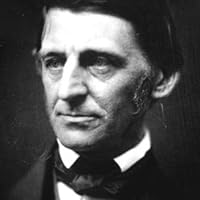
“Men have looked away from themselves and at things so long that they have come to esteem the religious, learned and civil institutions as guards of property, and they deprecate assaults on these, because they feel them to be assaults on property. They measure their esteem of each other by what each has, and not by what each is.”
― Self-Reliance: An Excerpt from Collected Essays, First Series
― Self-Reliance: An Excerpt from Collected Essays, First Series

“Libertarianism holds that the only proper role of violence is to defend person and property against violence, that any use of violence that goes beyond such just defense is itself aggressive, unjust, and criminal”
―
―
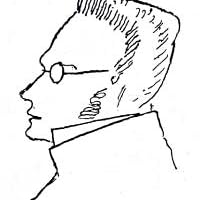
“My power is my property. My power gives me property. My power am I myself, and through it am I my property.”
― The Ego and Its Own
― The Ego and Its Own
“Water belongs to us all. Nature did not make the sun one person's property, nor air, nor water, cool and clear.”
― The Metamorphoses of Ovid
― The Metamorphoses of Ovid

“In the first place, Cranford is in possession of the Amazons; all the holders of houses above a certain rent are women. If a married couple come to settle in the town, somehow the gentleman disappears; he is either fairly frightened to death by being the only man in the Cranford parties, or he is accounted for by being with his regiment, his hip, or closely engaged in business all the week in the great neighbouring commercial town of Drumble, distant only twenty miles on a railroad. In short, whatever does become of the gentlemen, they are not at Cranford.”
― Cranford
― Cranford

“As a man is said to have a right to his property, he may be equally said to have a property in his rights.”
―
―

“Repression by brute force is always a confession of the inability to make use of the better weapons of the intellect—better because they alone give promise of final success.”
― Liberalism: The Classical Tradition
― Liberalism: The Classical Tradition

“It is labor alone that is productive: it creates wealth and therewith lays the outward foundations for the inward flowering of man.”
― Liberalism: The Classical Tradition
― Liberalism: The Classical Tradition

“Against what is stupid, nonsensical, erroneous, and evil, [classical] liberalism fights with the weapons of the mind, and not with brute force and repression.”
― Liberalism: The Classical Tradition
― Liberalism: The Classical Tradition

“If one prevents a man from working for the good of society while at the same time providing for the satisfaction of his own needs, then only one way remains open to him: to make himself richer and others poorer by the violent oppression and spoliation of his fellow men.”
― Liberalism: The Classical Tradition
― Liberalism: The Classical Tradition
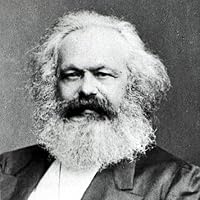
“Even an entire society, a nation, or all simultaneously existing societies taken together, are not the owners of the earth. They are simply its possessors, its beneficiaries, and have to bequeath it in an improved state to succeeding generations as boni patres familias [good heads of the household].”
― Capital: A Critique of Political Economy, Volume 3
― Capital: A Critique of Political Economy, Volume 3
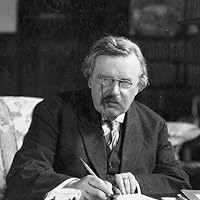
“A pickpocket is obviously a champion of private enterprise. But it would perhaps be an exaggeration to say that a pickpocket is a champion of private property. The point about Capitalism and Commercialism, as conducted of late, is that they have really preached the extension of business rather than the preservation of belongings; and have at best tried to disguise the pickpocket with some of the virtues of the pirate.”
― The Outline of Sanity
― The Outline of Sanity

“The pyramid shape is said to hold many secrets and amazing properties. One of them is a sense of wonder.”
―
―
“I knew, as every peasant does, that land can never be truly owned. We are the keepers of the soil, the curators of trees.”
― The Palace
― The Palace

“It was a fact generally acknowledged by all but the most contumacious spirits at the beginning of the seventeenth century that woman was the weaker vessel; weaker than man, that is. ... That was the way God had arranged Creation, sanctified in the words of the Apostle. ... Under the common law of England at the accession of King James I, no female had any rights at all (if some were allowed by custom). As an unmarried woman her rights were swallowed up in her father's, and she was his to dispose of in marriage at will. Once she was married her property became absolutely that of her husband. What of those who did not marry? Common law met that problem blandly by not recognizing it. In the words of The Lawes Resolutions [the leading 17th century compendium on women's legal status]: 'All of them are understood either married or to be married.' In 1603 England, in short, still lived in a world governed by feudal law, where a wife passed from the guardianship of her father to her husband; her husband also stood in relation to her as a feudal lord.”
― The Weaker Vessel
― The Weaker Vessel
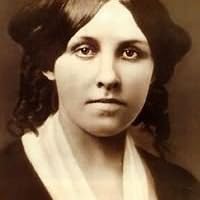
“I've been so bothered with my property, that I'm tired of it, and don't mean to save up any more, but give it away as I go along, and then nobody will envy me, or want to steal it, and I shan't be suspecting folks and worrying about my old cash.”
― Little Men
― Little Men

“We are accused of being obsessed by property. The truth is the other way round. It is the society and culture in question which is so obsessed. Yet to an obsessive his obsession always seems to be of the nature of things and so is not recognized for what it is. The relation between property and art in European culture appears natural to that culture, and consequently if somebody demonstrates the extent of the property interest in a given cultural field, it is said to be a demonstration of his obsession. And this allows the Cultural Establishment to project for a little longer its false rationalized image of itself.”
―
―

“Do you know how they brainwash people? They repeat something over and over. And that's what we do in this country. Owning things is good. More money is good. More property is good. More commercialism is good. More is good. More is good. We repeat it-- and have it repeated to us-- over and over until nobody bothers to even think otherwise. The average person is so fogged up by all this, he has no perspective on what's really important anymore.”
― Tuesdays with Morrie
― Tuesdays with Morrie
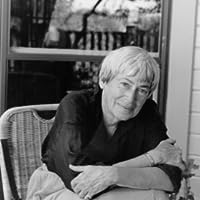
“When in the Land of Property think like a propertarian. Dress like one, eat like one, act like one, be one.”
― The Dispossessed: An Ambiguous Utopia
― The Dispossessed: An Ambiguous Utopia
“Given an area of law that legislators were happy to hand over to the affected industries and a technology that was both unfamiliar and threatening, the prospects for legislative insight were poor. Lawmakers were assured by lobbyists
a) that this was business as usual, that no dramatic changes were being made by the Green or White papers; or
b) that the technology presented a terrible menace to the American cultural industries, but that prompt and statesmanlike action would save the day; or
c) that layers of new property rights, new private enforcers of those rights, and technological control and surveillance measures were all needed in order to benefit consumers, who would now be able to “purchase culture by the sip rather than by the glass” in a pervasively monitored digital environment.
In practice, somewhat confusingly, these three arguments would often be combined. Legislators’ statements seemed to suggest that this was a routine Armageddon in which firm, decisive statesmanship was needed to preserve the digital status quo in a profoundly transformative and proconsumer way. Reading the congressional debates was likely to give one conceptual whiplash.
To make things worse, the press was—in 1995, at least—clueless about these issues. It was not that the newspapers were ignoring the Internet. They were paying attention—obsessive attention in some cases. But as far as the mainstream press was concerned, the story line on the Internet was sex: pornography, online predation, more pornography. The lowbrow press stopped there. To be fair, the highbrow press was also interested in Internet legal issues (the regulation of pornography, the regulation of online predation) and constitutional questions (the First Amendment protection of Internet pornography). Reporters were also asking questions about the social effect of the network (including, among other things, the threats posed by pornography and online predators).”
― The Public Domain: Enclosing the Commons of the Mind
a) that this was business as usual, that no dramatic changes were being made by the Green or White papers; or
b) that the technology presented a terrible menace to the American cultural industries, but that prompt and statesmanlike action would save the day; or
c) that layers of new property rights, new private enforcers of those rights, and technological control and surveillance measures were all needed in order to benefit consumers, who would now be able to “purchase culture by the sip rather than by the glass” in a pervasively monitored digital environment.
In practice, somewhat confusingly, these three arguments would often be combined. Legislators’ statements seemed to suggest that this was a routine Armageddon in which firm, decisive statesmanship was needed to preserve the digital status quo in a profoundly transformative and proconsumer way. Reading the congressional debates was likely to give one conceptual whiplash.
To make things worse, the press was—in 1995, at least—clueless about these issues. It was not that the newspapers were ignoring the Internet. They were paying attention—obsessive attention in some cases. But as far as the mainstream press was concerned, the story line on the Internet was sex: pornography, online predation, more pornography. The lowbrow press stopped there. To be fair, the highbrow press was also interested in Internet legal issues (the regulation of pornography, the regulation of online predation) and constitutional questions (the First Amendment protection of Internet pornography). Reporters were also asking questions about the social effect of the network (including, among other things, the threats posed by pornography and online predators).”
― The Public Domain: Enclosing the Commons of the Mind

“There was nothing to compare with standing on a piece of land you owned free and clear. No one could push you off it, no one could take it from you, no one could tell you what to do with it. The soil belonged to you, and so did every rock, every blade of grass, every tree, and all the water and minerals under the land all the way to the center of the earth. And if the world went to hell in a hand-basket—as it seemed to be doing—you could say good-bye to everyone and retreat to your land, hunkering down and living off it. Land belonged to you and yours forever.”
― Half Broke Horses
― Half Broke Horses
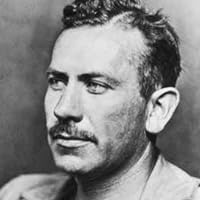
“That's what makes it ours-being born on it, working on it, dying on it. That makes ownership, not a paper with numbers on it.”
― The Grapes of Wrath
― The Grapes of Wrath
All Quotes
|
My Quotes
|
Add A Quote
Browse By Tag
- Love Quotes 97k
- Life Quotes 75.5k
- Inspirational Quotes 72.5k
- Humor Quotes 43.5k
- Philosophy Quotes 29.5k
- Inspirational Quotes Quotes 27k
- God Quotes 26k
- Truth Quotes 23.5k
- Wisdom Quotes 23.5k
- Romance Quotes 23k
- Poetry Quotes 22k
- Death Quotes 20k
- Happiness Quotes 18.5k
- Life Lessons Quotes 18.5k
- Hope Quotes 18k
- Faith Quotes 18k
- Quotes Quotes 16.5k
- Inspiration Quotes 16.5k
- Spirituality Quotes 15k
- Religion Quotes 15k
- Motivational Quotes 15k
- Writing Quotes 14.5k
- Relationships Quotes 14.5k
- Life Quotes Quotes 14k
- Love Quotes Quotes 13.5k
- Success Quotes 13.5k
- Time Quotes 12.5k
- Motivation Quotes 12k
- Science Quotes 11.5k
- Knowledge Quotes 11k






